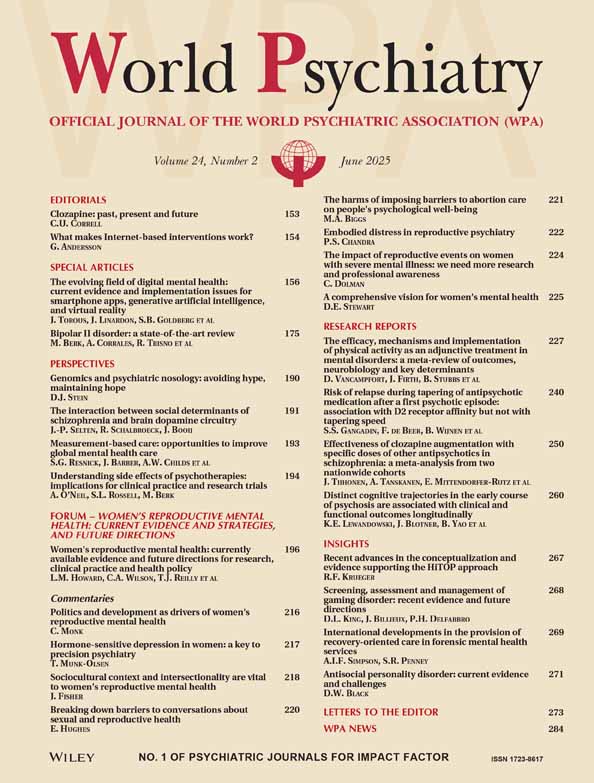Real-world implementation of early intervention in psychosis: resources, funding models and evidence-based practice
It has been repeatedly pointed out that clinical practices are often based not on evidence but on accidents in the past. For the first time in the history of psychiatry, evidence is now building up to make a rational case for early intervention for psychosis. The successful implementation of this early intervention, however, is still inevitably determined by many contextual factors unrelated to our level of knowledge. Apart from perceptions and group dynamics, as highlighted in McGorry et al's article, the availability of resources and local funding models are among the issues shaping early psychosis service provision in the real world.
In places with low mental health resources, systematic screening and preventive intervention for ultra-high risk individuals remain difficult. Certain areas have adopted a strategy to focus service on “stage 2”, or early detection and treatment of first-episode psychosis. In the Hong Kong experience, limited public funding is carefully allocated to optimizing treatment in the first 2 years of a diagnosable psychotic illness 1. Although this approach means that some stages of psychosis might not be receiving enough attention, emerging evidence on cost-effectiveness of early intervention programmes will provide a more solid rationale for further developments.
The attitudes of service providers as “early adopters”, “late majority” or “laggards” may largely be determined by local health service funding models or payment methods. Studies have revealed that these models exert different effects on service utilization 2 as well as service provision 3. It is likely that, in systems closer to the fee-for-service model, there will be lower motivation for providing health education and preventive intervention, as it may be perceived to result in reduced service usage and income. On the other hand, inertia against reform or development might be expected to be strongest in systems similar to fixed salaries: such system reduces incentives for care providers to outper-form 4, and might create barriers for early help-seeking (as this leads to a perceived increase in workload). In this aspect, a budget or population-based funding model may be the most fertile ground for the development of early intervention programmes, where investment in preventive approaches can be favoured compared with less efficient tertiary care.
A clinical staging model of psychosis may provide a powerful tool that transcends monetary incentives by orienting patients and providers' awareness towards interventional outcome in a well-defined population. From the research perspective, staging psychosis could be an optimal way to identify specific factors affecting outcome, while minimizing noise due to sample heterogeneity. The 0–4 stage model proposed by McGorry et al 5 can serve as a useful framework, upon which future research can be based, to progressively construct an augmented model with more specific markers and best management strategies. A positive research-practice cycle towards “best practice” in psychosis can thus be started, whereby well organized services provide the setting for optimal research, and the new emergent data are then used to inform evidence-based clinical practice guidelines for specific stages in psychotic disorders.




